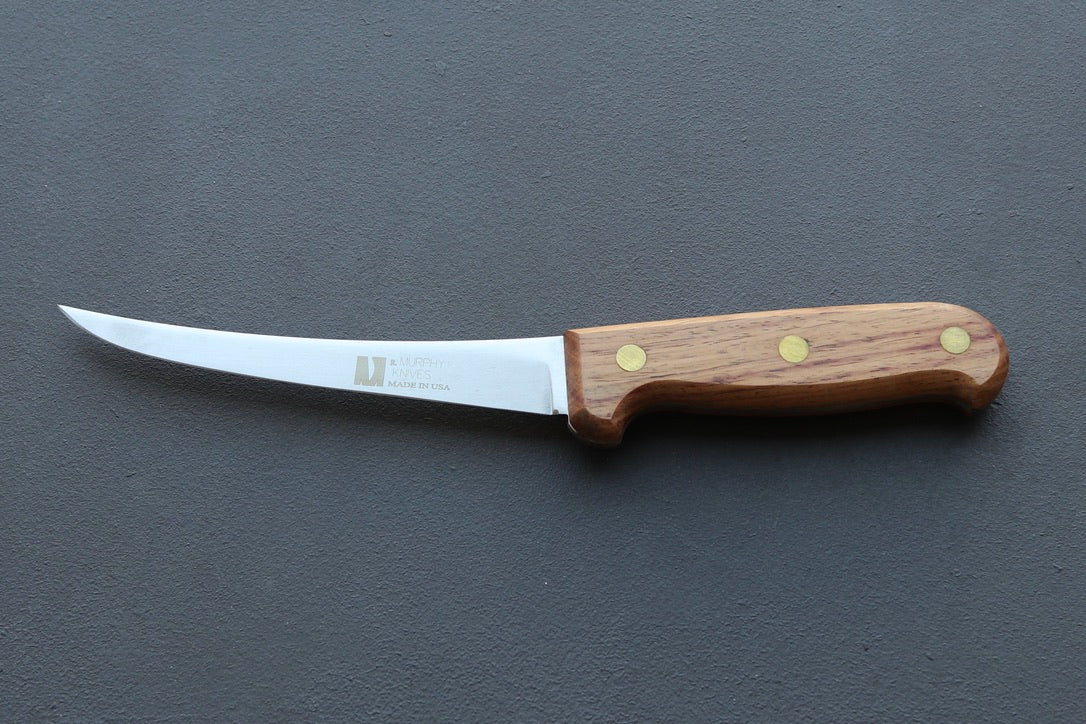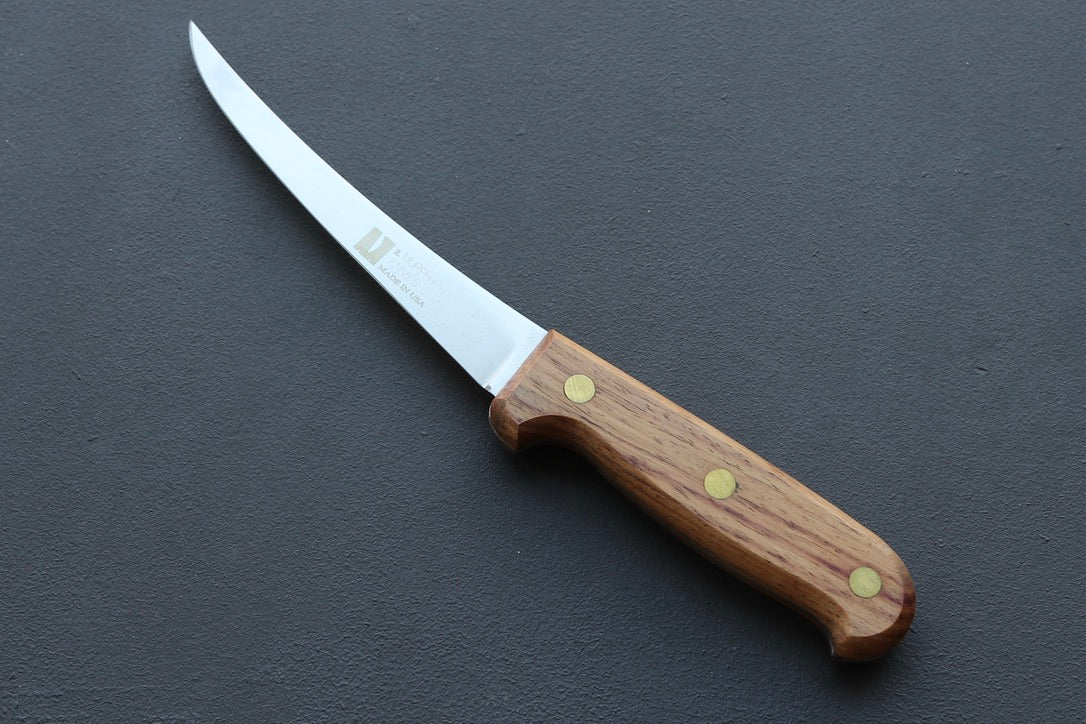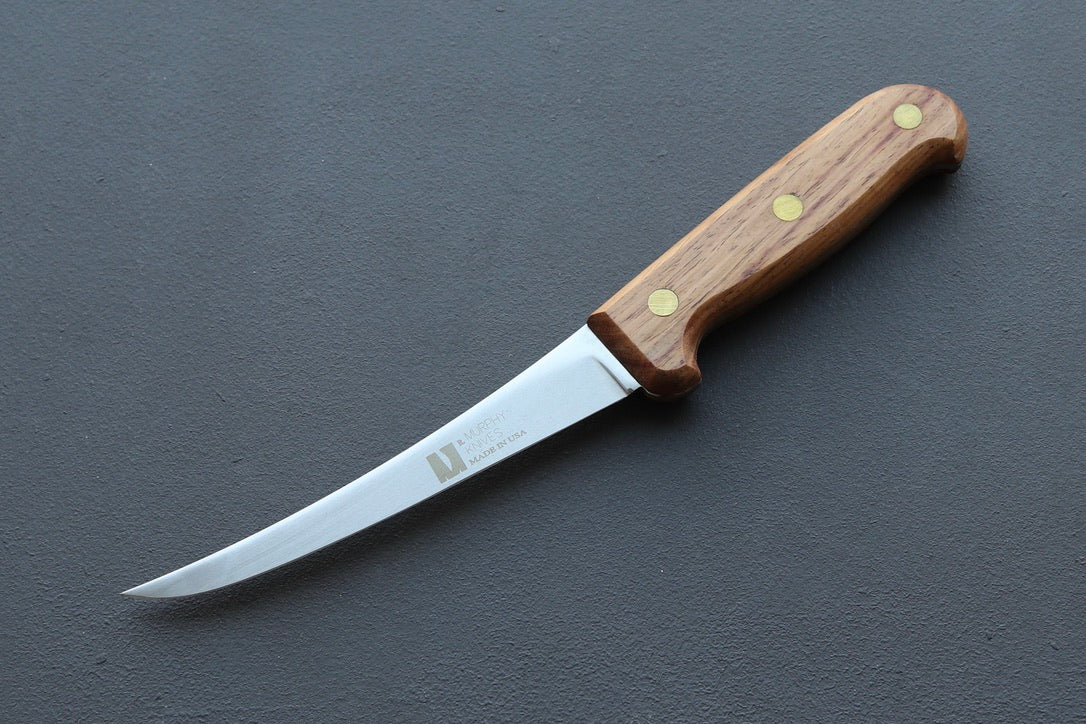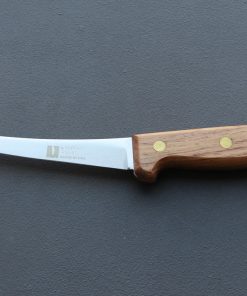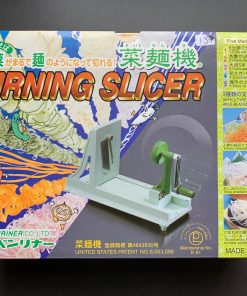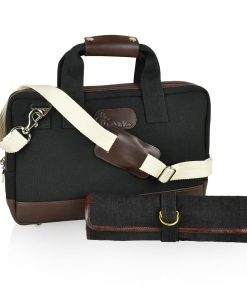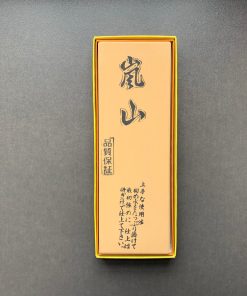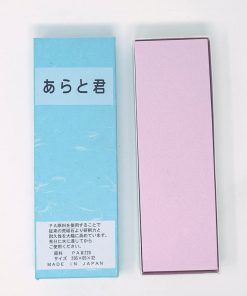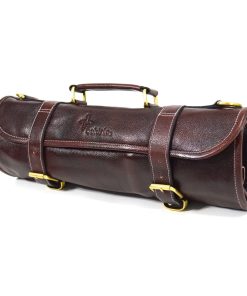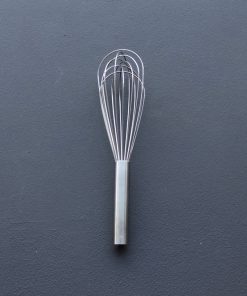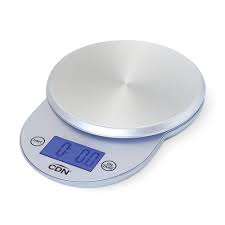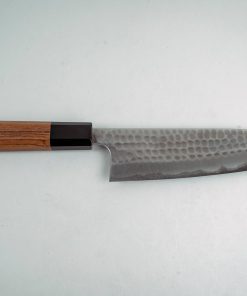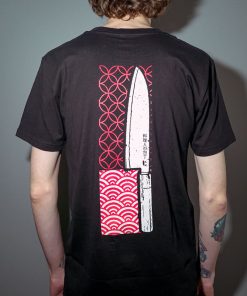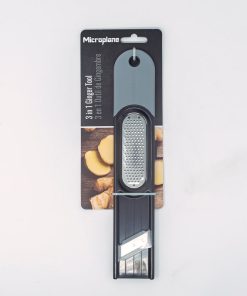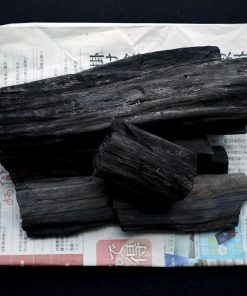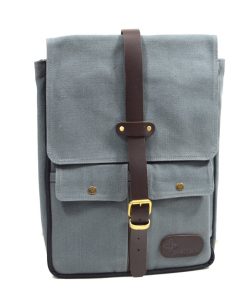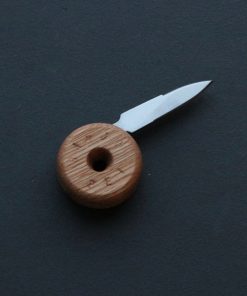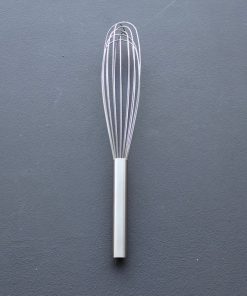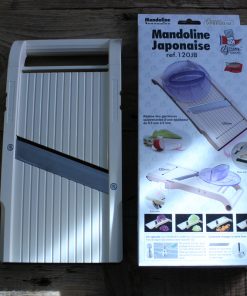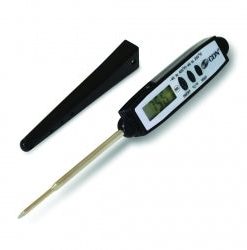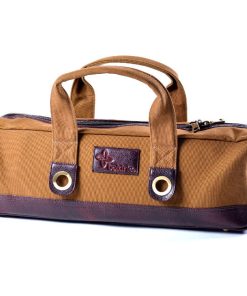R.MURPHY AMERICAN BONING KNIFE 155MM The Cook’s Edge
$ 125,00 $ 50,00
| Steel | 1095 carbon |
| HRC | 58:60 |
| Length | 155mm |
| Height at heel | 25mm |
| Spine thickness above heel | 2mm |
| Weight | 155 grams |
| Handle | Rosewood full tang/brass rivets |
KNIFE CARE:
- Never put a knife in a dishwasher, ALWAYS wash by hand.
- Avoid steel wool and other abrasive cleaners. Use a soft sponge or cloth with mild detergent and warm water,
- Do not cut through bones, this can chip the blade.
- Never use this knife to cut frozen food, use an old knife for these types of jobs.
- Do not twist the blade out of food if it gets stuck, and never smash it against the cutting board.
- Always use a wooden or plastic cutting board (end grain wood is best). Never cut on glass, marble, slate, a plate, china, or anything harder than steel. Also avoid bamboo as it is very hard and dulls knives quickly.
- Store knives in a way that the blades will not knock into each other.
- Use a ceramic honing rod or leather strop for the edge maintenance.
- Never use coarse steel honing rod or diamond rod. Do not use a wheel sharpener or sharpening tools. Always sharpen by hand on whetstones
- Never scrape the blade’s edge across the cutting board.
Care for your carbon steel knives:
Anyone who has used a carbon knife can testify that they are awesome. They cut beautifully, they sharpen easier than stainless knives, and generally look rad when handled and cared for properly.
The downside to owning a carbon steel knife is that is can rust. To avoid rusting, please wipe the blade clean after use, and NEVER store a knife that is not dry.
After time, with proper care, you will develop what is called patina. The patina on your blade will only get better looking over time, and will become more resistant to oxidation.
If you do happen to notice a little rust forming, not to worry. Simply use a soft sponge or scrubby (never use steel) with warm soapy water to remove. Afterwards apply a small amount of camellia oil or mineral oil, and away you go!
Quick Shipping and Professional Packaging
We offer a wide range of shipping options due to our long-standing relationships with UPS, FedEx and DHL. Our warehouse staff are highly trained and will package your items in accordance with our exact and precise specifications. Your items will go through an exhaustive examination before they will be properly packaged prior to being sent out. Every day, we deliver to thousands of customers in many countries. The fact that we are dedicated to becoming the largest online retailer in the World is obvious. Both Europe and the USA have distribution and warehouse centres.
Please note that orders with multiple items are given a processing time according to the particular item.
Prior to shipment, we inspect the ordered items thoroughly. The majority of orders will be shipped within 48 hours. It is expected that delivery will take between three and seven days.
Returns
The inventory is always changing and we are unable to completely manage it due to the fact that multiple parties are involved, including our factory and warehouse. Stock levels can fluctuate at any given time. Please understand it may happen that your order will be out of stock when the order has been placed.
Our policy is for 30 days. If you don't receive your product within 30 days, we're not able to issue a refund or an exchange.
In order to be eligible for a refund, your product must be unopened and in the same state as when you received it. It must also be returned in its original packaging.
Related products
Uncategorized
Uncategorized
Uncategorized
Uncategorized
Uncategorized
Uncategorized
Uncategorized
Uncategorized
Uncategorized
Uncategorized
Uncategorized
Uncategorized
Uncategorized
Uncategorized
Uncategorized
Uncategorized
Uncategorized
Uncategorized
Uncategorized
Uncategorized
Uncategorized
Uncategorized
Uncategorized
Uncategorized
Uncategorized
Uncategorized
Uncategorized
Uncategorized
Uncategorized
Uncategorized
